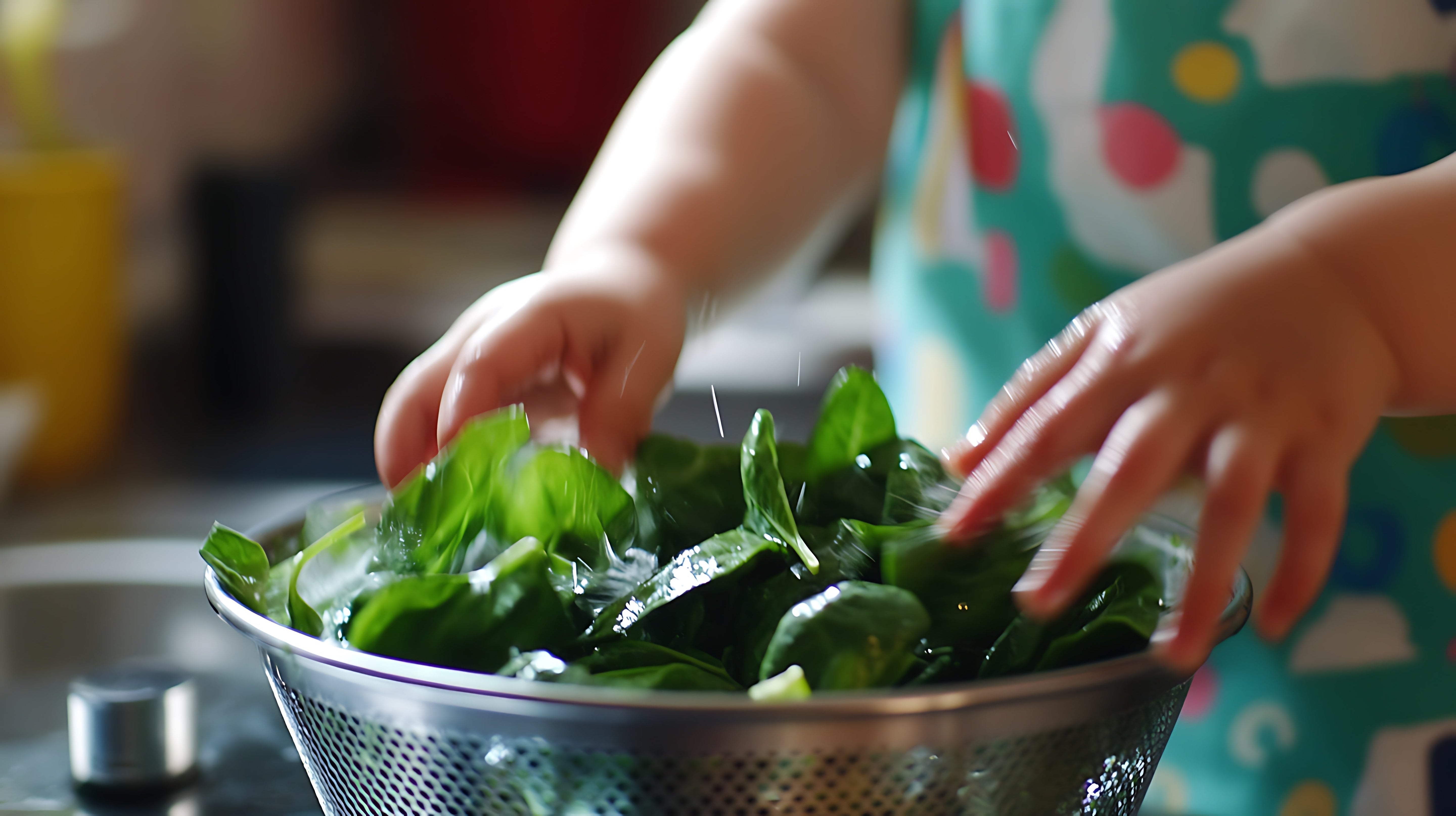Even before a positive pregnancy test, your body’s already doing the work. An egg’s final maturation takes roughly three months—so the nutrients you eat today help build tomorrow’s cycle, hormone balance, and baby’s earliest building blocks. (PMID: 3558758)
The Core Nutrients (and exactly where to find them)
Folate
Why it matters: Folate supports proper closure of the neural tube in the first 28 days—often before you know you’re pregnant. Most major guidelines advise 600 mcg/day of folate/folic acid beginning before conception; continue through early pregnancy.
Food folate still counts—just know it’s hard to hit the mark with food alone.
Eat more: dark leafy greens (spinach, kale, arugula), avocado, lentils & black beans, broccoli & Brussels sprouts.
Iron
Why it matters: Low iron can show up as fatigue and may relate to irregular ovulation; in a large prospective cohort, iron supplement users had lower risk of ovulatory infertility vs. non-users. Build healthy stores before pregnancy. (PMID: 17077236)
How much: 18 mg/day for most pre-pregnancy adults; 27 mg/day in pregnancy.
Eat more: grass-fed beef, wild-caught salmon, oysters, lentils & chickpeas, pumpkin seeds. (Pair plant iron with vitamin-C foods for better absorption.)
Omega-3s (DHA/EPA)
Why it matters: Omega-3s support hormone production, lower inflammation, and are critical for fetal brain and eye development. Consensus guidance suggests 300 mg DHA/day; eating 2–3 servings/week of low-mercury fish typically covers it.
Avoid high-mercury species (e.g., swordfish, some tuna).
Eat more: wild-caught fatty fish (salmon, sardines, anchovies), omega-3 eggs, walnuts, chia & flax.
Quality Protein & Fats
Why it matters: Protein and unsaturated fats help steady post-meal blood sugar and provide precursors for reproductive hormones. Mixed meals with protein/fat/fiber blunt postprandial glucose spikes compared to carb-only meals.
Practical target: Many do well shooting for ~75–100 g protein/day (adjust for body size, training, and appetite).
Eat more: pasture-raised eggs, avocado, nuts (almonds, cashews, walnuts), extra-virgin olive oil, full-fat dairy (if tolerated), grass-fed meat.
Choline (the one most people miss)
Why it matters: Choline is vital for fetal brain and spinal cord development and for one-carbon metabolism—on par with folate, but talked about far less.
The recommended intake is 425 mg/day for adult women, 450 mg/day in pregnancy, and 550 mg/day in lactation—yet <10% of US adults (and pregnant people) meet this.
Eat more: egg yolks (top source), beef liver, salmon, potatoes, chickpeas.
Gentle Swaps (no shame)
- Trade some ultra-processed snacks for whole-food staples (nuts, fruit, yogurt, beans). Diets higher in UPFs tend to be lower in key micronutrients—exactly what you’re trying to build.
- Ease back on sugary drinks; choose fiber + protein with carbs to smooth glucose swings.
- Alcohol: once actively TTC, many clinicians advise pausing given early embryonic development before recognition.
- Caffeine: moderation is fine; pregnancy guidance is <200 mg/day, and many TTC folks use similar limits. ACOG guidelines
Beyond Food: Low-lift Habits That Help
-
Sleep on a schedule. Irregular sleep and shift work can relate to lower fecundability; aim for consistent timing and duration.
-
Walk daily + lift something weekly. Movement improves insulin sensitivity and metabolic health—indirect wins for cycles.
- Stress skills (not perfection). Mind–body interventions show mixed but promising signals for well-being during fertility care; use what calms your nervous system.
If You’re Choosing a Prenatal
Look for:
- Methylated folate in the 600 mcg range to cover periconception needs.
- Iron (dose based on labs/symptoms), iodine, and vitamin D
- 300 mg DHA
- Choline support (eggs help; most prenatals are light here).
TTC Grocery Shortlist (copy/paste)
- Folate: leafy greens, avocado, lentils/black beans, broccoli/Brussels.
- Iron: beef, salmon, oysters, lentils/chickpeas, pumpkin seeds.
- Omega-3s: salmon, sardines, anchovies; omega-3 eggs; walnuts, chia, flax.
- Protein & fats: eggs, yogurt/cottage cheese, tofu/tempeh, chicken/fish, EVOO, nuts.
- Choline: egg yolks, beef liver, salmon, potatoes, chickpeas.
Bottom line
You don’t need a restrictive “fertility diet.” You need consistent, nutrient-dense meals that quietly hit folate, iron, omega-3s, quality protein/fats, and choline—starting now, while the next egg is maturing. Then let habits (sleep, movement, stress skills) do the compounding.
Educational only; not medical advice. Check your personal needs and labs with your clinician, especially for iron and vitamin D.



